-
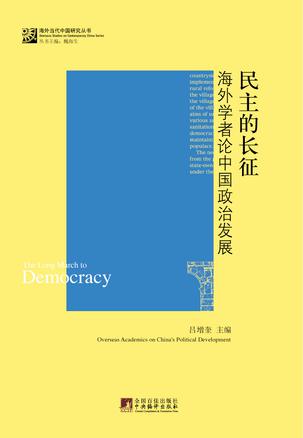
民主的长征
中国政治改革面对着怎样的困境和挑战?全球化背景下的中国法治建设取得了哪些进展?村民选举和社区建设对中国基层治理改革的意义何在?私营企业主的政治参与对中国共产党是挑战还是机会?中国妇女为谁而选举?……本书收录世界知名学者对中国政治发展的思考和发现,分别从政治发展与前景、人民代表大会制度与法治建设、农村与城市基层民主、公民社会与政治参与四个方面加以阐释。所选文章均为外籍学者对中国政治发展问题进行学术探讨的第一手资料,集中对这些成果进行归纳和呈现,使国内了解海外学界对于“中国政治发展”的研究细节。 -
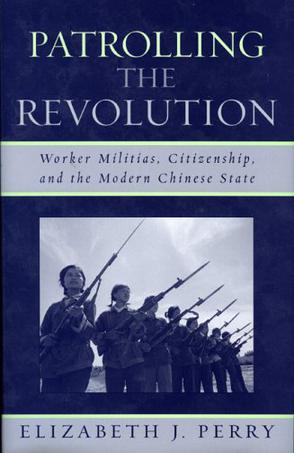
Patrolling the Revolution
This pioneering study explores the role of working-class militias as vanguard and guardian of the Chinese revolution. The book begins with the origins of urban militias in the late nineteenth century and follows their development down to the present day. Elizabeth Perry focuses on the institution of worker militias as a vehicle for analyzing the changing (yet enduring) impact of China's revolutionary heritage on subsequent state-society relations. She also incorporates a strong comparative perspective, examining the influence of revolutionary militias on the political trajectories of the United States, France, the Soviet Union, and Iran. Based on exhaustive archival research, the work raises fascinating questions about the construction of revolutionary citizenship; the distinctions among class, community, and creed; the open-ended character of revolutionary movements; and the path dependency of institutional change. All readers interested in deepening their understanding of the Chinese Revolution and in the nature of revolutionary change more generally will find this an invaluable contribution. -
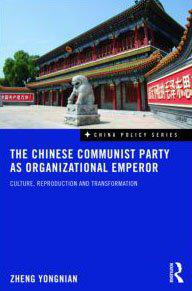
The Chinese Communist Party as Organizational Emperor
The Chinese Communist Party (CCP) is the largest, and one of the most powerful, political organizations in the world today, and has played a crucial role in initiating most of the major reforms of the past three decades in China. China's rapid raise has enabled the CCP to extend its influence throughout the globe, but the West remains uncertain whether the CCP will survive China's ongoing socio-economic transformation and whether China will become a democratic country. With rapid socio-economic transformation, the CCP has itself experienced drastic changes. Zheng Yongnian argues that while the concept of 'political party' in China was imported, the CCP is a Chinese cultural product: it is an entirely different breed of political party from those in the West � an organizational emperor, wielding its power in a similar way to Chinese emperor of the past. Using social and political theory, this book examines the CCP's transformation in the reform era, and how it is now struggling to maintain the continuing domination of its imperial power. The author argues that the CCP has managed these changes as a proactive player throughout, and that the nature of the CCP implies that as long as the party is transforming itself in accordance with socio-economic changes, the structure of the party dominion over the state and society will not be allowed to change. -
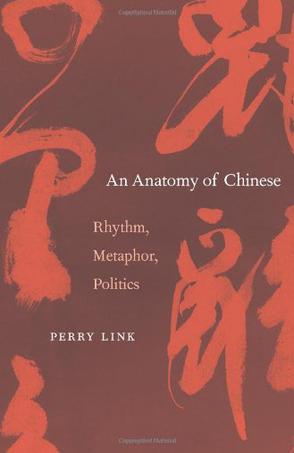
An Anatomy of Chinese
During the Cultural Revolution, Mao exhorted the Chinese people to “smash the four olds”: old customs, old culture, old habits, and old ideas. Yet when the Red Guards in Tiananmen Square chanted “We want to see Chairman Mao,” they unknowingly used a classical rhythm that dates back to the Han period and is the very embodiment of the four olds. An Anatomy of Chinese reveals how rhythms, conceptual metaphors, and political language convey time-honored meanings of which Chinese speakers themselves may not be consciously aware, and contributes to the ongoing debate over whether language shapes thought, or vice versa. Perry Link’s inquiry into the workings of Chinese reveals convergences and divergences with English, most strikingly in the area of conceptual metaphor. Different spatial metaphors for consciousness, for instance, mean that English speakers wake up while speakers of Chinese wake across. Other underlying metaphors in the two languages are similar, lending support to theories that locate the origins of language in the brain. The distinction between daily-life language and official language has been unusually significant in contemporary China, and Link explores how ordinary citizens learn to play language games, artfully wielding officialese to advance their interests or defend themselves from others. Particularly provocative is Link’s consideration of how Indo-European languages, with their preference for abstract nouns, generate philosophical puzzles that Chinese, with its preference for verbs, avoids. The mind-body problem that has plagued Western culture may be fundamentally less problematic for speakers of Chinese. -
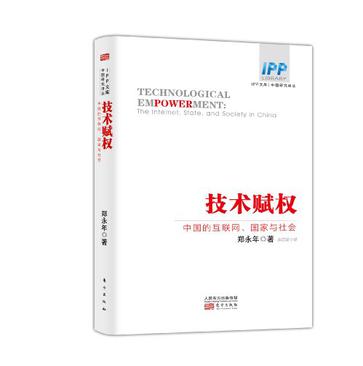
技术赋权
在本书中,作者对中国互联网的历史做了一次突破性的研究,细致又全面地观察了中国互联网对于国家和社会的影响,发现互联网给中国的社会—政治变革带来了新的动力。政府权力和社会力量在以互联网为媒介的公共领域中转换。 从大量的数据梳理和事实分析中,作者得出了四重的研究结论。首先,互联网给政府和社会都增加了权力。互联网在促进政治自由化中扮演了重要的角色,使政府更加开放、透明和负责任。第二,互联网产生了大量的影响,高度分散和超越了政府权力的限度。第三,互联网为政府和社会彼此间的契约和分离创造了一个新的基础结构。第四,互联网创造了一种政府和社会的回归关系。政府和社会之间在互联网上相互作用,最终重塑了政府和社会。 -
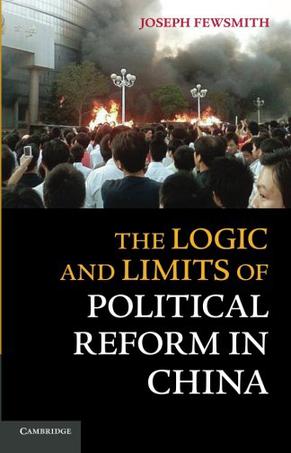
The Logic and Limits of Political Reform in China
It has often been argued that China will follow an incremental path to political reform, just as its economic reforms followed a gradual course. Indeed, it seemed that China was embarking on such a course in the 1990s, but political reform has stalled. This book uses case studies of prominent reform efforts to understand both why reform was started and why it has stalled. It draws on the literature on institutions and authoritarian political systems and so will appeal to students of comparative politics as well as those interested in China.